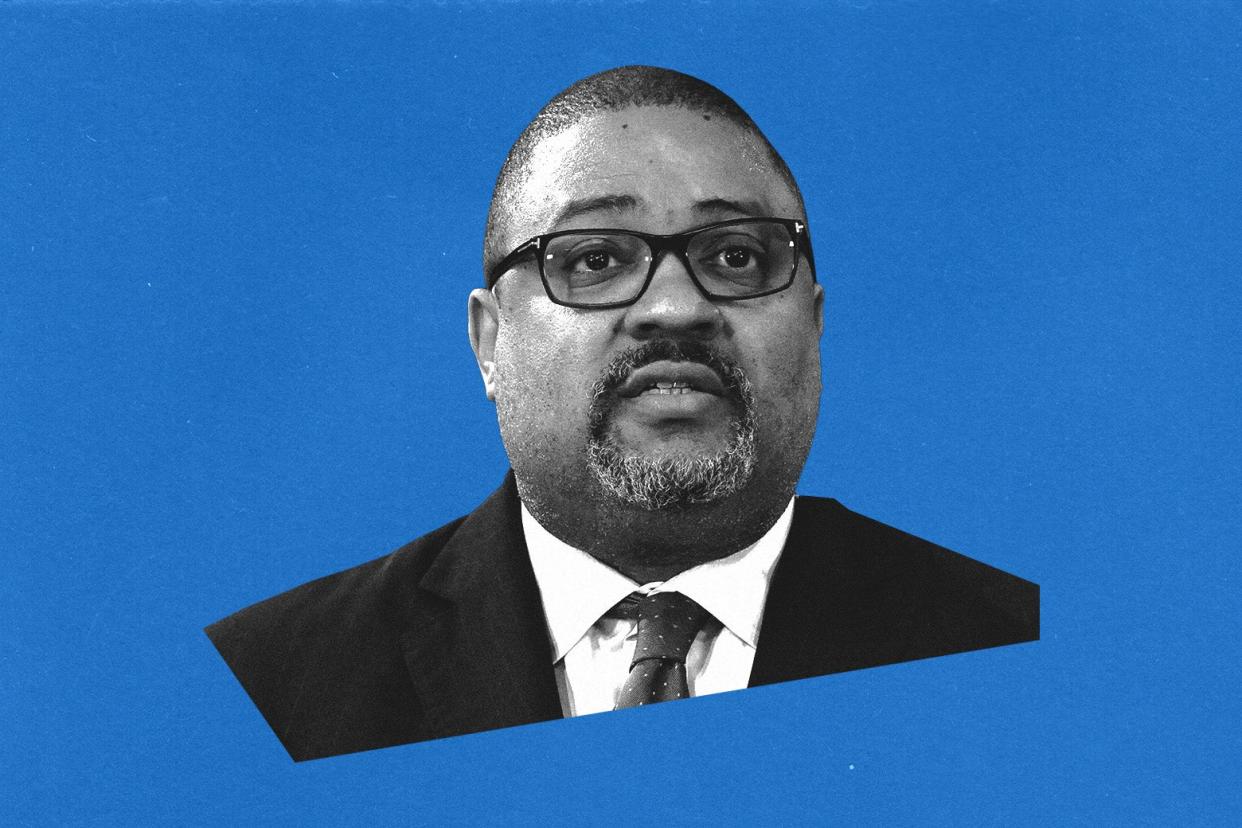The Trump Trial Delay in the Alvin Bragg Case Was Entirely Avoidable

- Oops!Something went wrong.Please try again later.
- Oops!Something went wrong.Please try again later.
On Thursday, New York District Attorney Alvin Bragg consented to a brief delay in the looming Trump hush money trial over an evidence disclosure snafu. The last-minute turnover of some 100,000 documents by the United States Attorney’s Office for the Southern District of New York to both sides in the “hush money” trial—records produced in a parallel SDNY investigation concluded some two years ago with the decision not to prosecute Trump for potential federal crimes—will almost surely cause a postponement of the March 25 trial date.
Bragg had requested these materials some time ago, but apparently it took Donald Trump’s January subpoena for these records to get federal prosecutors to fully comply.
Team Trump asked for a 90-day delay to review the records, and Bragg agreed to a 30-day extension. Given the likelihood that the trial judge, Juan Merchan, will thus be forced to grant additional time, the only question is how long the delay will be.
While this latest bump in the road in the three-year, multijurisdictional effort to bring Donald Trump to justice is likely to spark yet another chorus of legal axioms such as “justice delayed is justice denied” and “the wheels of justice grind slowly,” my immediate reference point is not legal scholars but to baseball’s legendary “old professor,” Casey Stengel. As the manager of the New York Mets in the team’s impossibly bad 1962 opening season, Stengel famously asked, “Can’t anyone here play this game?”
How is it that two well-known and highly respected prosecutorial offices could not have gotten their act together on these materials long ago? As a former federal prosecutor and white-collar defense attorney in New York, I know firsthand just how impressive these lawyers are. I also know that prosecutors from different offices investigating the same matter regularly coordinate their efforts, even when they are competing against each other to control an important case. The investigation of a former president of the United States greatly enhances the need to coordinate.
We will, of course, never know what happened, and it is all too easy to make after-the-fact judgments from the sidelines, but one thing is clear: This should have been avoided.
Making matters worse, the likelihood that the documents in question contain something really significant for either Bragg or Team Trump is slim. If they contained what is called Brady or exculpatory material—information helping to establish Trump’s innocence—federal prosecutors would likely have previously alerted Bragg. On the other side of the coin, important evidence of Trump’s guilt would have also been provided to law enforcement colleagues by a prosecutor’s office no longer having skin in the game.
And it will get even worse. We can fully expect that when the delay ends, Trump’s lawyers will file new motions, however frivolous, based upon what they will claim to be “newly discovered evidence” contained in the materials. While these filings will accomplish nothing substantively, they will none the less likely achieve their purpose—causing even further delay.
If that were not bad enough, this latest delay, however long it will be, necessarily, and negatively, impacts the ability to schedule the three other Trump prosecutions prior to the November election, even though all three would reveal to the voting public one of the candidates’ historically significant criminal conduct.
Of course, it has taken far more than this latest delay to explain how we are where we are. While surely a great deal will be written about how we got into this state of suspended animation, four things immediately jump out—the roughly 22 months it took Attorney General Merrick Garland to appoint Jack Smith as special counsel to address the classified records fiasco and the Jan. 6 riots; the decision to file the classified documents case in Florida, not D.C. (whatever the potential challenges to the choice of venue, avoiding Judge Aileen Cannon was surely worth the effort); the mind-blowing lack of judgment exhibited by Fulton County District Attorney Fani Willis in Georgia’s election interference case forcing either her or her top prosecutor to step down; and of course, the United States Supreme Court’s inability (or was it refusal?) to act quickly and apply the lessons of Bush v. Gore to Trump’s patently baseless, twice rejected claim of absolute immunity.
It’s now worth it to revisit Justice John Paul Stevens’ famous dissent in that case. “Although we may never know with complete certainty the identity of the winner of this year’s presidential election, the identity of the loser is perfectly clear. It is the Nation’s confidence in the judge as an impartial guardian of the rule of law,” he wrote. Unless our nation’s criminal justice system, top to bottom, can more effectively get its act together, the nation’s confidence in the backbone of our democracy will be a thing of the past.

